How Much Water Should You Drink Each Day?
Your water intake needs are different than others.
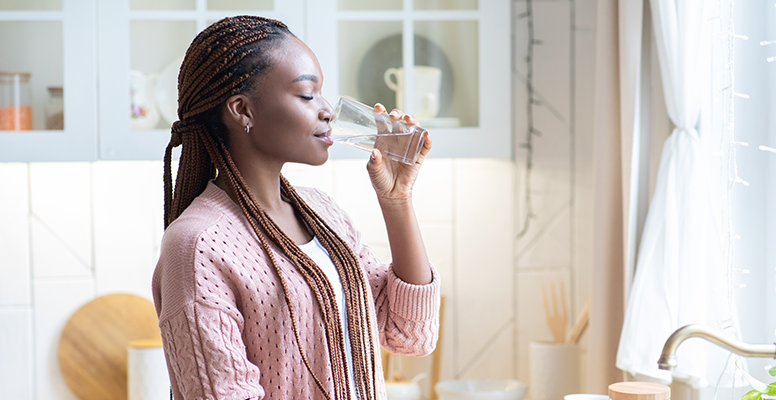
Almost everyone is familiar with the phrase, “Drink eight, eight-ounce glasses of water each day.” When this statement originated, it was true for the average person who, at the time, weighed about 128 pounds. Things have changed since then, plus we have learned there really is no all-encompassing recommendation for the right amount of water to drink. It all depends on your body and your lifestyle.
Water makes up about 60 percent of the human body, but we lose water regularly by breathing, sweating and simply living. If we lose water without replenishing it, it affects our ability to function properly. To maintain our performance levels, we must stay hydrated.
Improve Your Drinking Water
Contact A Kinetico Water Expert Today
Fill out your information below and we’ll have one of our authorized, independent Kinetico dealers contact you to with more information on a Kinetico water filtration systems.
Drinking water and staying hydrated help you:
- Maintain or lose weight
- Improve muscle function
- Promote proper brain function
- Keep energy levels up
- Maintain healthy-looking and feeling skin
- Support kidney and liver function
With so many benefits to drinking water and staying hydrated, how can you maintain proper hydration?
Weight-based Water Intake
Your recommended daily water intake is related to your body size and activity level. In essence, not everyone needs eight, eight-ounce glasses of water each day. Some people may need less, while others need far more. The general rule is to drink one ounce of water for every two pounds of body weight. All you have to do is weigh yourself, then divide the number of pounds by two to figure out your needed water intake. Or check out the chart below.
|
Your Weight in Pounds |
Oz. of Water You Should Drink | No. of 8 oz. Glasses of Water You Should Drink |
|
80 |
40 | 5 |
|
90 |
45 | 6 |
|
100 |
50 | 6 |
|
110 |
55 | 7 |
|
120 |
60 | 7 |
|
130 |
65 | 8 |
|
140 |
70 | 9 |
|
150 |
75 | 9 |
|
160 |
80 | 10 |
|
170 |
85 | 11 |
|
180 |
90 | 11 |
|
190 |
95 | 12 |
|
200 |
100 | 12 |
|
210 |
105 | 13 |
|
220 |
110 | 14 |
|
230 |
115 | 14 |
|
240 |
120 | 15 |
|
250 |
125 | 16 |
Get Started With a Quote on a Kinetico Drinking Water System
Lifestyle Based Water Intake
Calculating your suggested water consumption using your weight doesn’t account for increased water needs due to an active lifestyle. Or that you may have other circumstances like where you live and other factors that cause you to lose more water. If this is the case for you, you should drink more water than what is suggested in the chart above.
Active Lifestyle
If you live an active lifestyle, chances are you sweat more and lose more water than the average person. Good hydration is essential for keeping your performance levels up. Even a two percent drop in your hydration level can result in decreased bodily function. If you are active, be sure to drink extra water to perform properly and prevent dehydration.
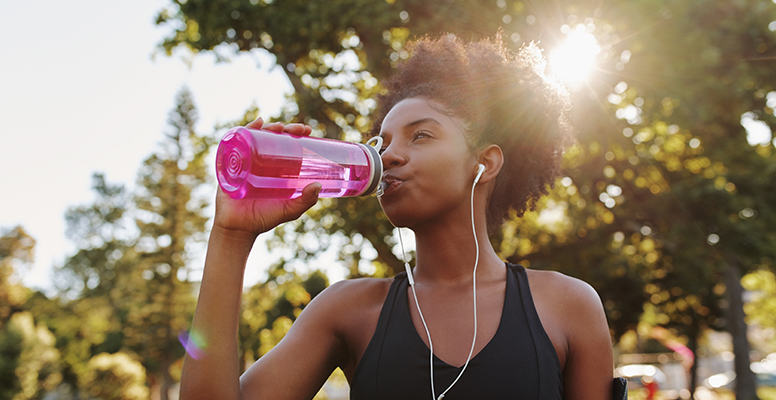
Where You Live
Warm weather climates: Those who live in warm climates need to drink more water. When the air is warm, you sweat to regulate your body’s temperature. Sweating drains the body of water, so you need to replace the lost water. The amount of water needed to replace what you’ve lost varies. If you feel thirsty, if your urine is dark or if you are urinating infrequently, chances are you are already dehydrated, so drink more water.
Cold weather climates: Living in cold climates can also present hydration challenges. Often, you don’t feel as thirsty when it’s cold; therefore, you may drink less water. Although it may not be as obvious when it’s cold out, you are still losing water by evaporation and simply breathing. Cold temperatures also increase urine production, so you may find you have to urinate more frequently. Less water intake and more frequent urination could easily land you in a state of dehydration without you even realizing it. Keep drinking water regularly to ensure proper hydration. Remember, hot beverages made with water, like caffeine-free tea or hot water with lemon, will help you stay warm and hydrated.
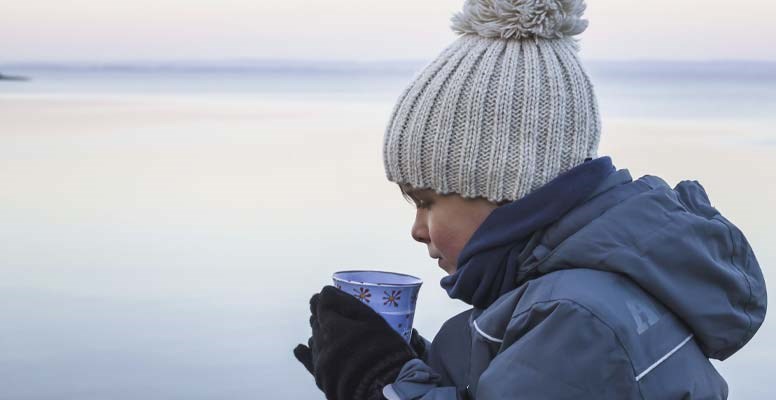
High Elevations: If you live in an area that's high above sea level, your body will lose more water. Reduced oxygen levels in the air make it harder to breathe. And when breathing is more difficult, your body will lose more water. Try to drink before you get thirsty, and watch the color of your urine and how often you go for clues that you need more water.
Pregnant or Breastfeeding
If you are pregnant or breastfeeding, your body is working extra hard. It’s important to drink enough water to keep yourself hydrated, but it’s even more important to drink a lot of water when there are extra demands on your body. There isn’t a rule on how much water a pregnant or breastfeeding woman should drink, but consider adding at least two additional eight-ounce cups of water to your normal daily intake. Pregnant or breastfeeding women should consult with their doctors regarding their water consumption.
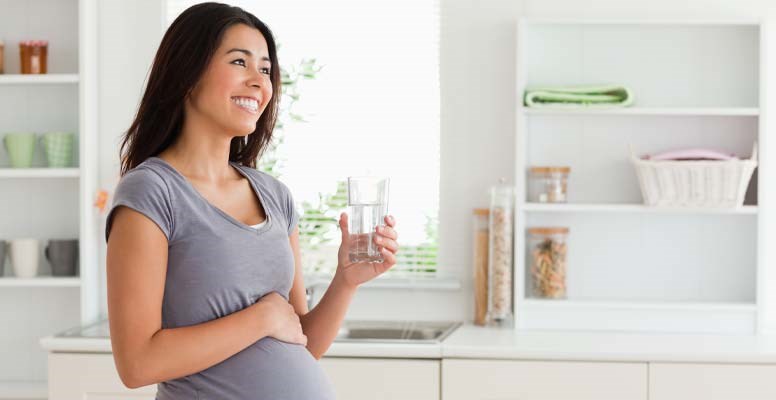
Hydration When You’re Sick
It’s important to stay hydrated when you are ill. We have a tendency to lose fluids at a faster rate when we don’t feel well than when we are healthy. A fever can drain the body of water more quickly too. Plus, when we are sick, we often are less interested in eating or drinking, so staying hydrated can be more of a challenge. Consuming plenty of fluids will help you regain your strength, help you recover and will often make you feel better. Do what you can to maintain or increase your water intake, even if you don’t feel thirsty.
Hydration For Weight Loss
Many people feel hungry when they really are thirsty and dehydrated. Try drinking a glass of water, and then see how you feel. Drinking water may be all you need to feel satisfied, or you may discover that you truly are hungry and need to eat.
Not everyone needs eight, eight-ounce glasses of water each day. Some people may need less, while others need far more.
How to increase your water consumption
If you need to drink more water, you are not alone. The majority of Americans are not drinking enough plain water each day. The key to increasing your water consumption is to make it easy for yourself. Carry a reusable water bottle filled with cold, refreshing water wherever you go. They are easy to refill, and you are more likely to drink water if you do not have to buy expensive bottled water.
An In-Home Drinking Water System Makes it Easier to Drink Water
Set a goal for how much water you want to drink a day. Once you set your goal, track your water intake. You can take notes on your phone or by hand to ensure you are meeting your goal. Use a water consumption app to track your intake, or purchase a water bottle or pitcher that holds all your water for the day.
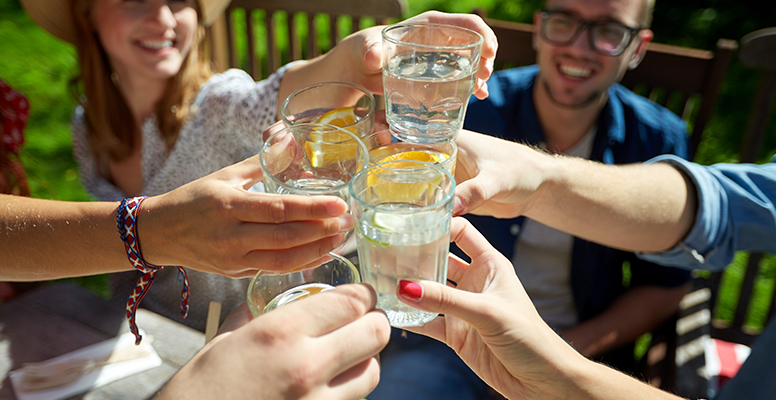
If the taste or lack of taste of your water is what’s holding you back from drinking more, there are plenty of options to help. Add fruits or vegetables to your water to flavor it naturally, without adding a lot of extra calories. Eating fruits and vegetables will also help replenish your water levels. Healthy foods often have great water replacement value, so they can help you reach your hydration goals. You could also check out what’s available in the beverage aisle of stores to jazz up the taste of water, but read the labels. You may be adding things like sugar or artificial flavors as well. If the taste or smell of your water is unpleasant, there are many simple and economical water treatment systems to improve the taste and quality of water.
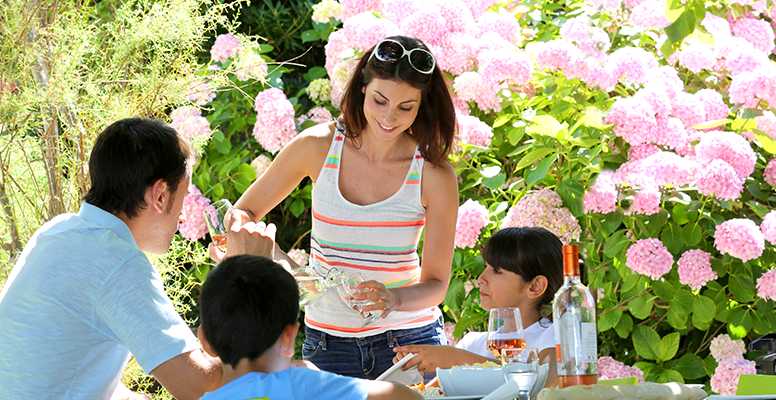
Many drink sparkling water, juice or sports drinks to replenish lost water. Just remember that these drinks should be consumed in moderation. They can aid in water replacement, but they are not as good as plain water. Juice often contains a lot of sugar. And sodium levels and other ingredients in sports drinks can be good for replenishing what’s lost through sweat, but when it comes to replenishing water levels, nothing compares to water.
Remember, it is important to drink water because it is essential to helping your body function properly. When your water level drops as little as 2 percent, your performance will also drop. There is no perfect answer to the question, “how much water should I drink?” Use the guidelines outlined above, experiment with different water intake levels, and discover what feels right for you.
Improve Your Drinking Water With a Kinetico Drinking Water System
